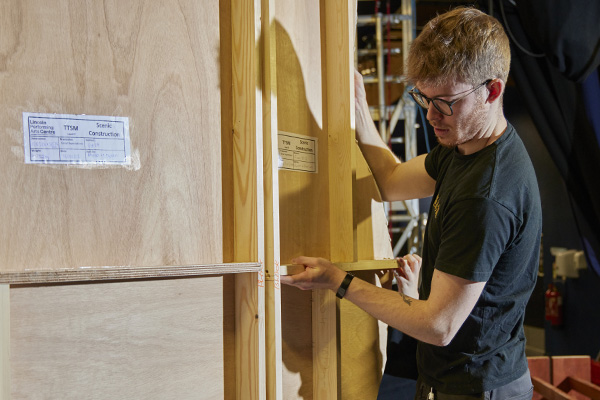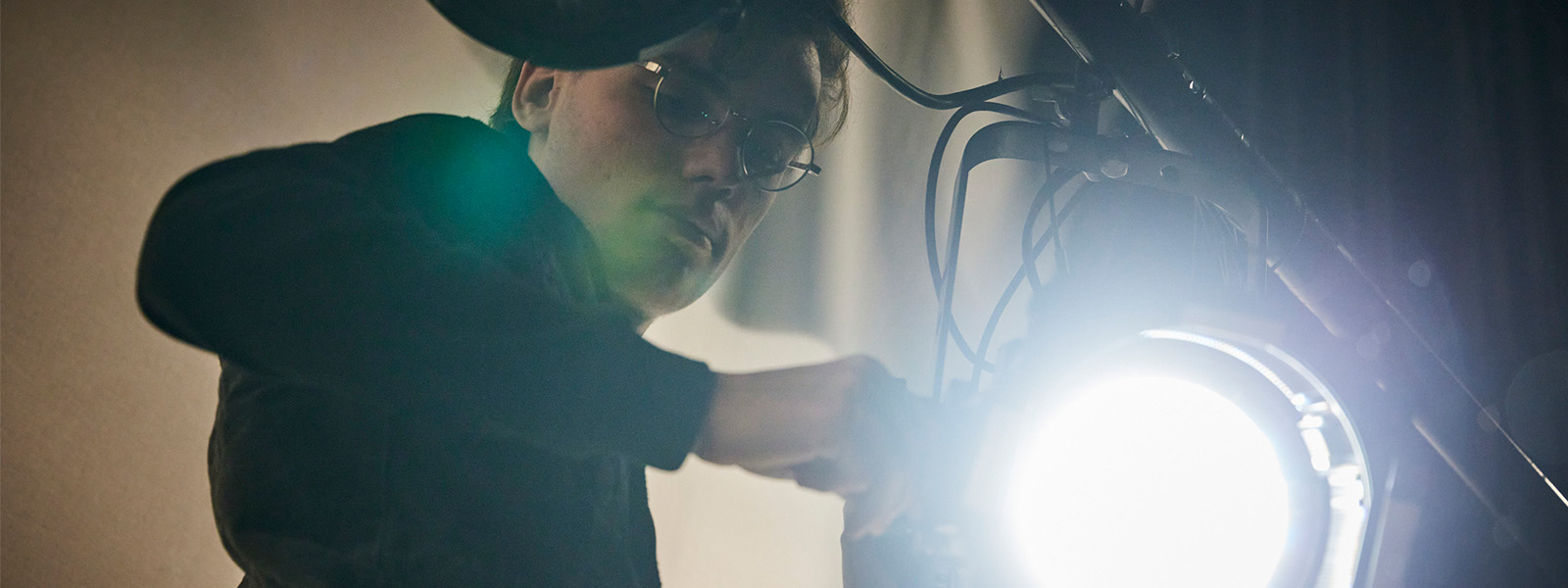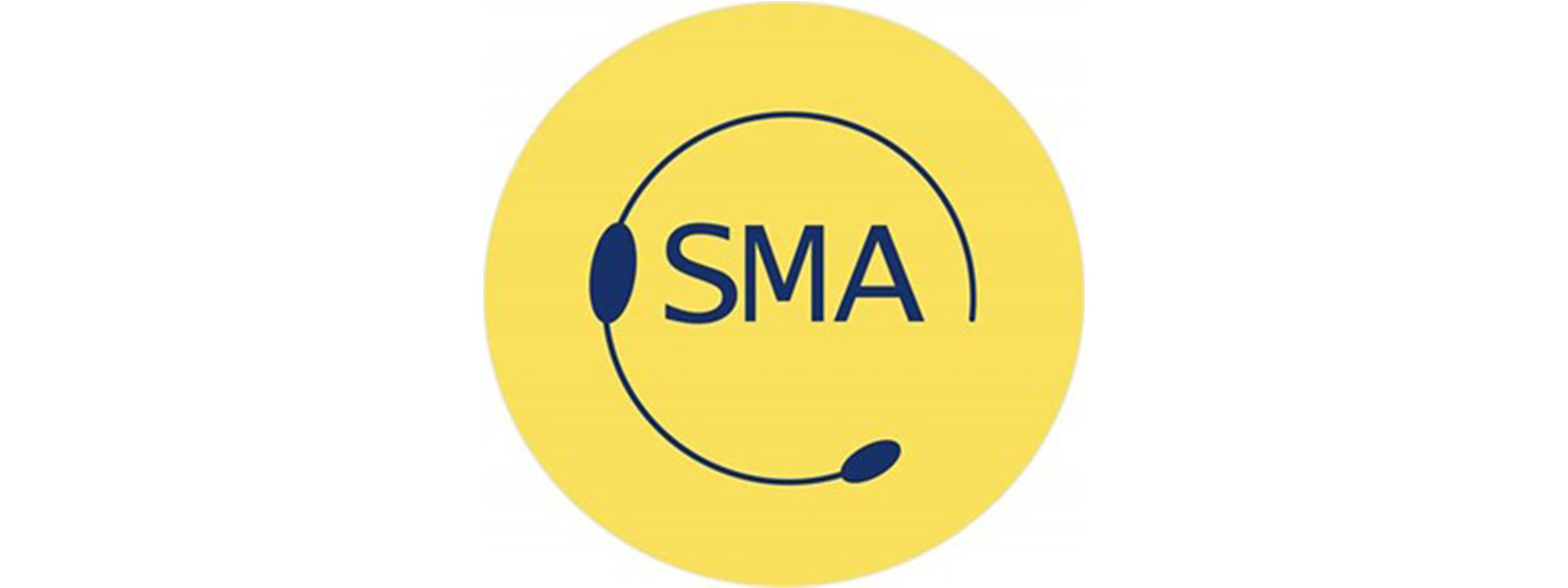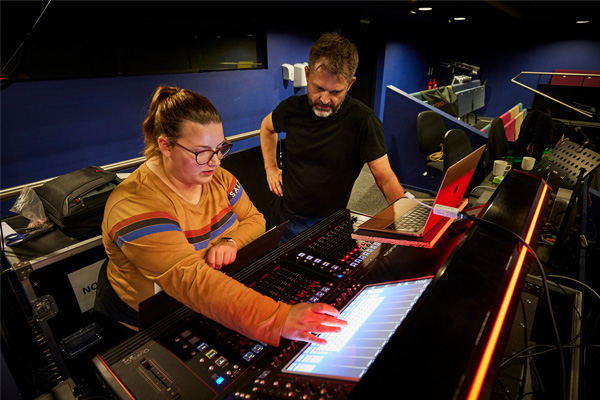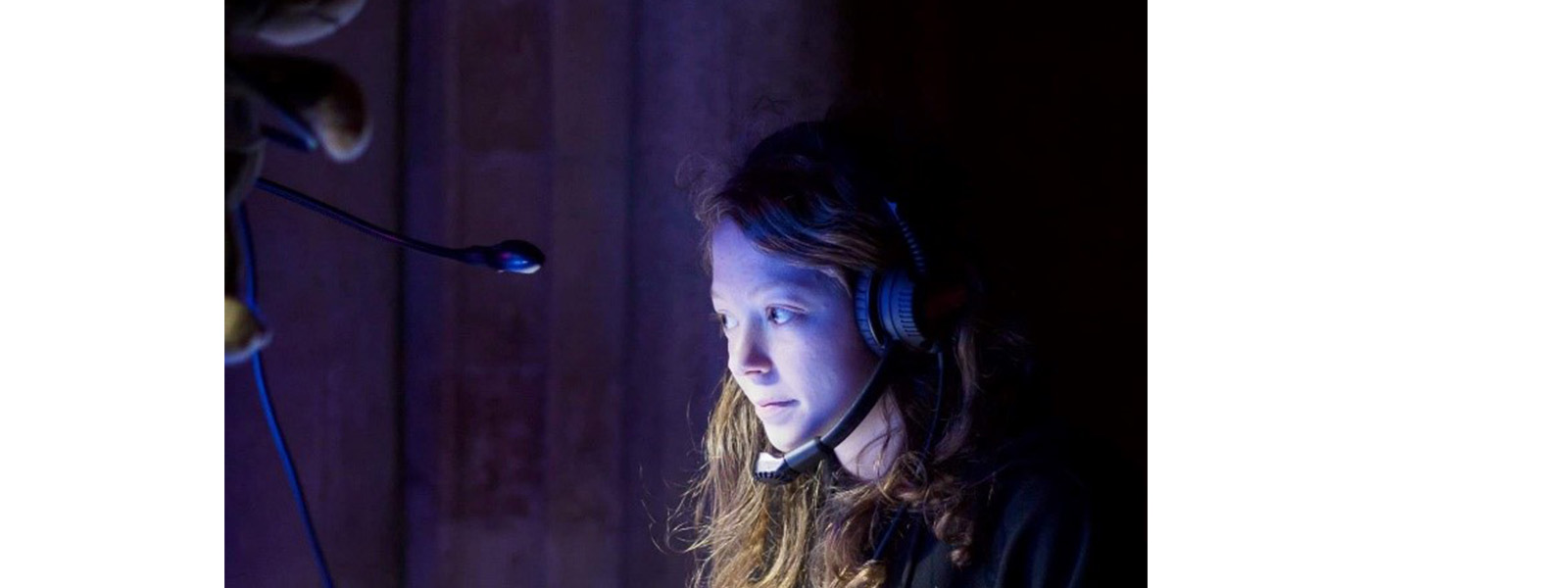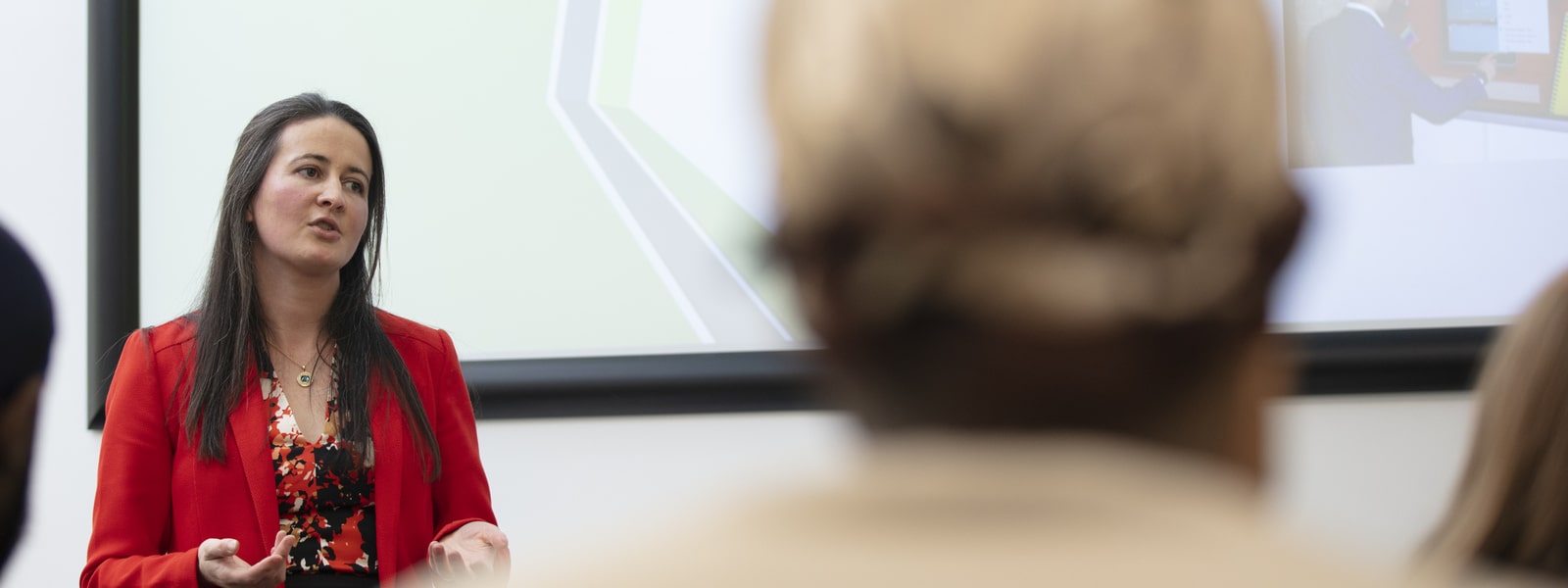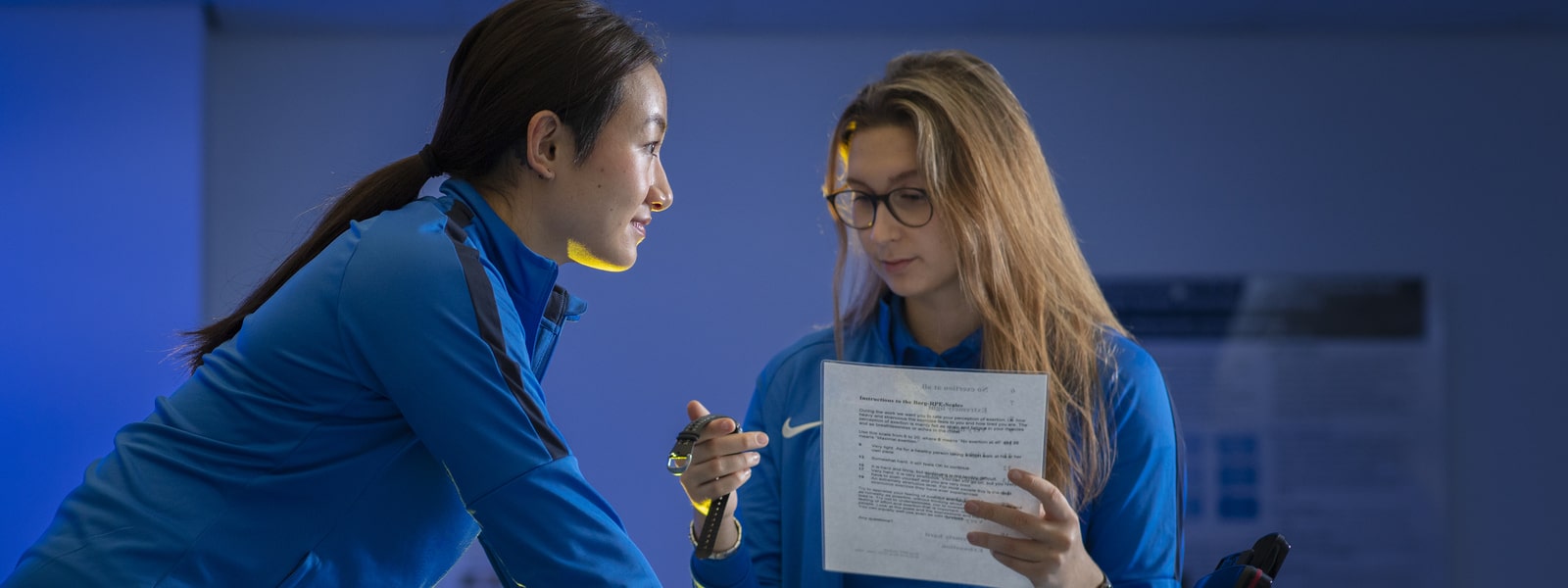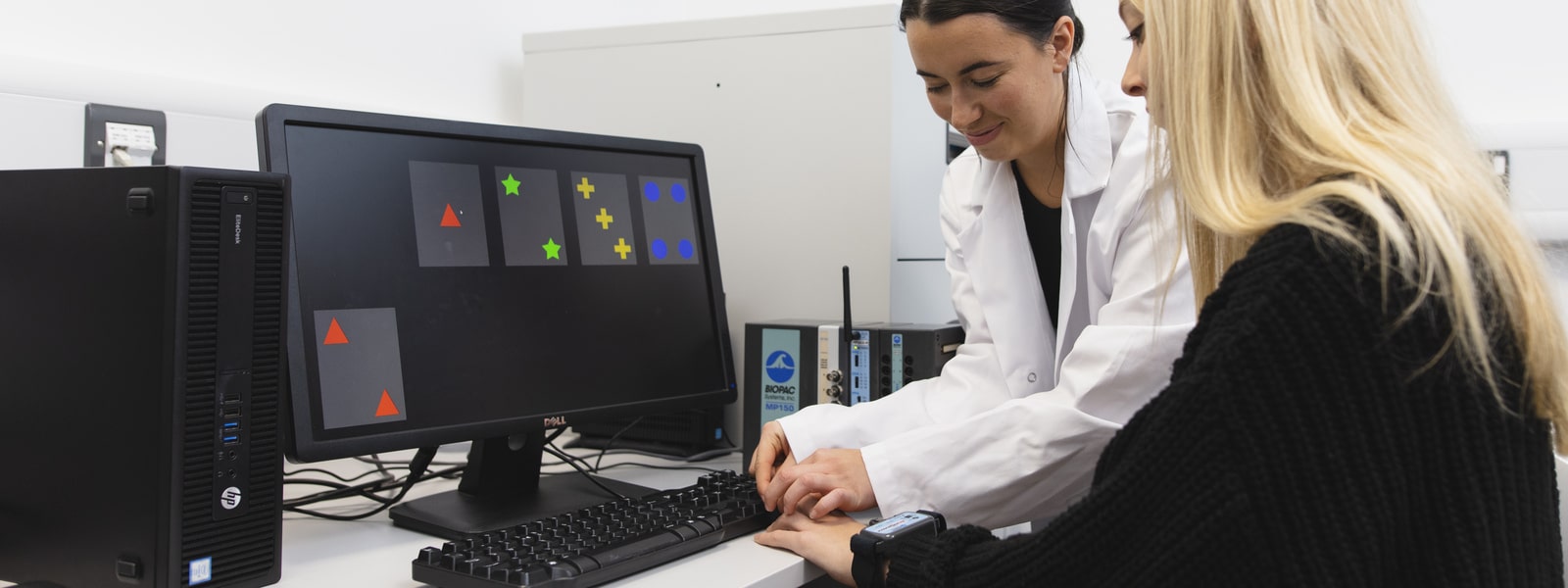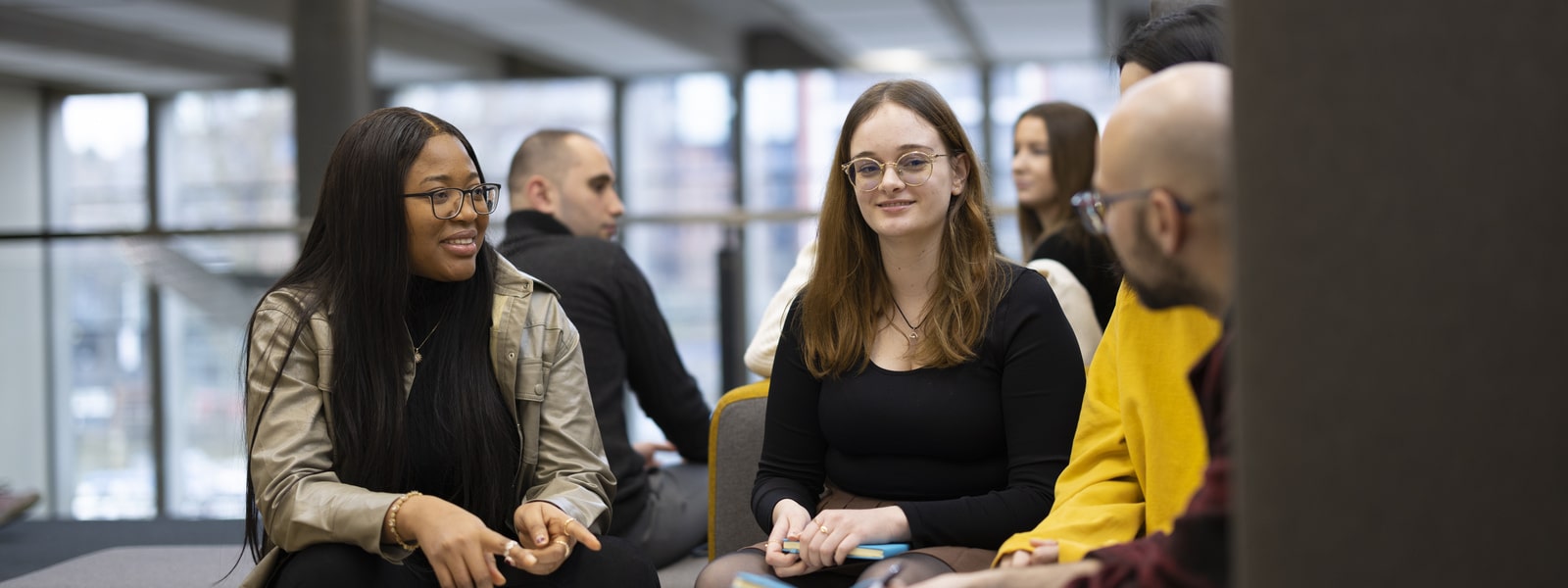Module Overview
In this module students will practically interrogate interdisciplinary arts practices and investigate creative arts practitioners that utilise ‘site’ in innovative ways. In multidisciplinary groups they will conduct their own experiments to explore the challenges and possibilities of working in unconventional spaces. This will culminate in a final presentation of their work.
Module Overview
This module aims to explore the many methods of set construction and types of stage sets, from scenic cloths to timber framed flats and steel constructions. The module can study common practices and deliver practical sessions teaching the fundamental skills to create scenery, including but not limited to: reading set plans, cutting timber and steel, building flats, creating flown scenery safely, prop making, and scenic artistry.
This module will introduce students to the histories and contemporary practices of scenography, as well as design as it relates to theatre and performance. Students will have the opportunity to navigate the subject historically, theoretically and practically, exploring multiple elements of design both atomically and holistically.
Module Overview
This module aims to give you an opportunity to immerse yourself in a specialist area within the creative arts. The content of the module is shaped by the research and practice expertise of staff members who actively collaborate with and mentor you throughout your exploration of this specialist area. This ensures that you benefit from the latest insights and methodologies within the chosen specialist area, gaining a well-rounded understanding that integrates theoretical knowledge with practical application.
Module Overview
In this module students are expected to study the roles of both a venue stage manager and a production manager, comparing and analysing each role’s individual responsibilities in the management and execution of a production. Students may also study the roles played by other stakeholders, such as the creative team, and their importance during the production process.
Module Overview
This is a practical module which explores the techniques of singing and acting a song. You will work on vocal technique, character development, and acting approaches to prepare solo numbers for performance. The module will equip you with the skills to begin to put together a rep portfolio appropriate for your voice. This will be invaluable if you are planning to apply for postgraduate study at drama school or begin auditioning for shows. Assessment will be part practical, and part based on a portfolio detailing your exploration of acting and vocal techniques through the module.
Module Overview
Arts and Health, an optional 30 credit module in Semester B, is a live brief project that offers students the opportunity to work in a professional public setting to facilitate artwork with participants. This may be a community, charity, educational, public or private sector setting in Lincoln or elsewhere. You will be given the opportunity in this module to facilitate artwork with service users, communities or clients in organisations such as We Are With You / Double Impact / NHS / YMCA / HMS or another charity or community setting.
We have successfully worked with We Are With You / Double Impact Lincoln for the past 7 years, a national drug and alcohol charity offering support to people to enable them to make positive behavioural change. Their work encompasses community support, education, help for those in the criminal justice system, mental health services, family and employment support. In recent years we have also started to grow our community settings to provide students with further professional facilitation experiences such as working with adults with lived experience within the NHS and local communities at Doddington Hall, that draw upon community arts, participatory arts, arts psychotherapeutic methods and occupational health approaches.
Students considering a career in arts-led intervention or community arts practices, will gain invaluable experience of planning, training for, delivering and evaluating a participatory art process within a community setting.
Module Overview
This module aims to enable students to understand the landscape for potential employment post-University. The module runs alongside the Placement module and will have the scope to feature guest talks from industry professionals.
Module Overview
Creative Audio Technologies encourages students to embrace and create using technology to facilitate an audio-based project, by exploring some of the creative tool available at the cutting edge of digital work. Students will be introduced to a spectrum of technological tools designed to enhance and record audio, before creating their own project incorporating these techniques. Existing original audio-based work – along with alternative uses of technologies – will be critically analysed in ways that embraces multiple genres, art forms and approaches to technology.
Module Overview
This module focuses on the interdisciplinary field of digital performance. “We define the term 'digital performance' broadly to include all performance works where computer technologies play a key role rather than a subsidiary one in content, techniques, aesthetics or delivery forms” (Dixon, 2007, p3).
It examines the intersection of digital media and performance in various contexts, such as interactive media on stage, biosensors and the body in performance, and social media and performance opportunities. By working with various digital technologies students can engage and explore practically how to make performance using these tools and new technologies.
Module Overview
This module is part of the University's commitment to academic programmes that encourage a high level of vocational relevance. This module encourages students to think beyond their University life, reaching into the wider community to hone their skills and target future employment possibilities. The module aims to enable students to examine how arts-based organisations, educational and non-traditional arts-based establishments function and provide students with valuable workplace experience.
Module Overview
The Industry Placement Year is an exciting opportunity for students to take a year out of formal study to gain real-world experience in the creative industries. Whether you’re looking to build industry connections, develop professional skills, or explore career options, this year will give you a full-time, hands-on experience within an arts, cultural, or creative organisation.
This year is a collaborative experience between you, your employer, and the University—ensuring that you get the most out of your time in a professional setting.
Module Overview
Study Abroad is an optional module which enables students to spend a semester studying abroad at one of the University’s approved partner institutions. Eligible students must have completed their first year of study to a satisfactory standard and successfully completed the application process for the study abroad scheme. During the semester spent abroad, students share classes with local students and study on a suite of locally-delivered taught modules which have been approved in advance by the University. Upon their return, as part of the assessment for this module, students are required to critically reflect upon their experience of living and studying in a different cultural environment and the skills acquired.
Module Overview
This module considers the current moment in musical theatre, and anticipates new innovations. It will focus particularly on musical theatre in the British and digital contexts, identifying new dynamics, new emergences, and new opportunities for and within the musical theatre industry.
Module Overview
This practical module teaches the fundamental techniques of armed and unarmed theatrical combat. Students undergo stage fight training designed to enable them to act out physical conflict in a safe and technically proficient way, while maintaining characterisation and creating a convincing illusion of reality. Throughout the semester, students work in pairs under the combat coach’s supervision. At the end of the module, they engage in an assessment by performing a fight scene that they have selected and rehearsed. The exam gives students the option of obtaining a stage combat certificate issued by The Academy of Performance Combat.
Module Overview
Throughout this module, students can develop and deepen their knowledge and practice of teaching and delivery in their chosen discipline. Students are able to practice, analyse, and discuss various possible strategies for working in a variety of environments, including more challenging environments, such as integrated settings and with hard-to-reach groups. In addition to the practical exploration of teaching and delivery, students can investigate the key policies and legislation surrounding the teaching profession. This module has a strong industry-facing element, and can provide key knowledge and tools for students wanting to move toward teaching and delivery as part of their career.
Module Overview
While students are introduced to prose fiction writing and essential narrative techniques at level 1, the field of prose writing is much wider than short stories or novels. In areas such as travel, historiography, literary journalism and biography, writers frequently employ similar techniques to those used by novelists to make events and characters more vivid.
This module will encourage students to use their creative and technical skills to write non-fiction, including but not limited travel writing, life writing, articles, reviews and journals. Particular attention will be paid to balancing the need to convey factual information with the creative potential of narrative, language and form.
This module will allow students to research a field they wish to investigate such as current events, the arts, history or some aspect of science. Students will learn both how to conduct research (through archival research, observations, and interviews) as well as the fundamental techniques of telling a true story. Extended over two semesters, it will enable students to engage more deeply with a chosen field of non-fiction, for example to produce chapters that would contribute to a book as well as features.
Module Overview
This module will explore the role of fiction writing with an initial emphasis on the short story. Many writers begin with the short story. Through writing short stories they are able to experiment, learn the fundamentals of narrative composition, and have the satisfaction of completing something to a high standard in a relatively short period of time.
This module will introduce students to the work of a range of fiction writers, whilst helping them to develop their skills in crafting prose. They will be asked to study particular stories each week, but also expected to pursue their own interests in reading. The skills required for writing short stories are also key to working in other forms, so this module will help students to develop as writers, whatever their plans and ambitions may be.
